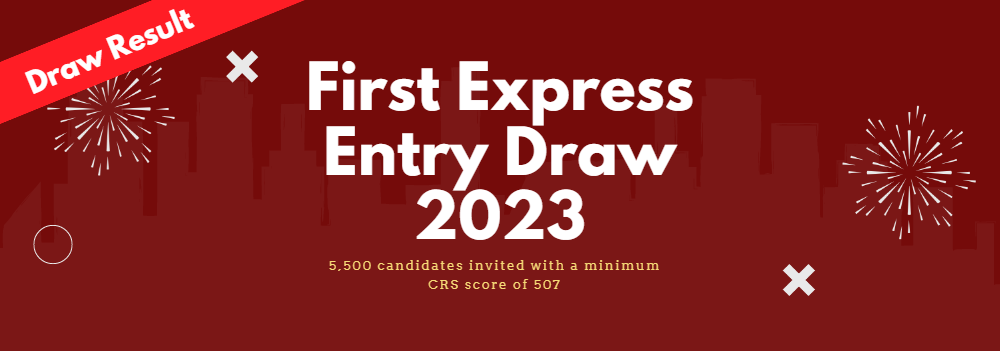Canada holds its inaugural Express Entry Draw in 2023.
The all-program round of invitations issued today is the first since the Express Entry draw on November 23.
Today was Canada’s first Express Entry draw of the year, and the first since November 23.
Immigration, Refugees, and Citizenship Canada (IRCC) invited 5,500 applicants with a minimum Comprehensive Ranking System (CRS) score of 507. Candidates from the Canadian Experience Class (CEC), the Federal Skilled Worker Program (FSWP), and the Federal Skilled Trades Program were invited (FSTP). All of these initiatives are part of the Express Entry system.
This is the largest all-program Express Entry draw since they commenced last July, with an increase in the amount of ITAs granted. There were 750 more invites than in the previous draw on September 28, which invited 4,750 candidates, as well as a higher CRS score than in the previous round on September 28.
In 2022, there will be an express entry.
Last year was a one-of-a-kind year for Express Entry. According to ministerial directives, 46,538 ITAs were given to Express Entry candidates during the 23 drawings in 2022. This figure covers drawings held between January and July for candidates in Provincial Nominee Programs (PNPs). Beginning in December 2020, all-program Express Entry draws were stopped for more than 18 months. The pause was caused by an application backlog induced by COVID-19-related travel restrictions. During this time, only candidates from the CEC or PNP were invited to apply (ITAs). However, in September 2021, IRCC also suspended CEC draws. The total ITAs for all program draws, which began in July and continued throughout the year, were 35,750.
The lowest minimum Comprehensive Ranking System (CRS) score in the most recent Express Entry lottery was 491.
Express Entry is preparing for changes.
IRCC established the stage for modifications to Express Entry in 2023 in the second part of 2022. In November, for example, IRCC implemented NOC 2021, an enhanced version of NOC 2016. The National Occupation Classification (NOC) method is used to identify the profession and skill level of an Express Entry candidate.
Canada will also increase the number of candidates invited through Express Entry programs, based on the Immigration Levels Plan 2023-2025 released on November 1. In 2023, 82,880 immigrants will be admitted to Canada as permanent residents through Express Entry. This will increase to 109,020 in 2024 and 114,000 in 2025, or approximately one-fifth of Canada’s total permanent resident admissions goals. These higher targets emphasize the importance Canada places on economic immigration in the face of an ongoing labour shortage. Immigration accounts for as much as 90% of labour force growth in Canada and approximately 75% of population growth.
IRCC transitioned from a skill classification system based on 0-D levels to one based on training, education, experience, and responsibilities (TEER). The new TEER system has amended NOC 2016’s competence levels 0-E and developed five TEERS in their place. Under NOC 2021, 16 new vocations are now eligible to apply for Express Entry-managed economic immigration programmes such as the FSWP or CEC.
Candidates who had previously submitted a profile to the IRCC Express Entry pool were invited to alter their NOCs to the new NOC 2021 on their own. Each position (job) listed in their IRCC profile must be updated. Candidates who do not comply shall be disqualified from getting an Invitation to Apply (ITA).

